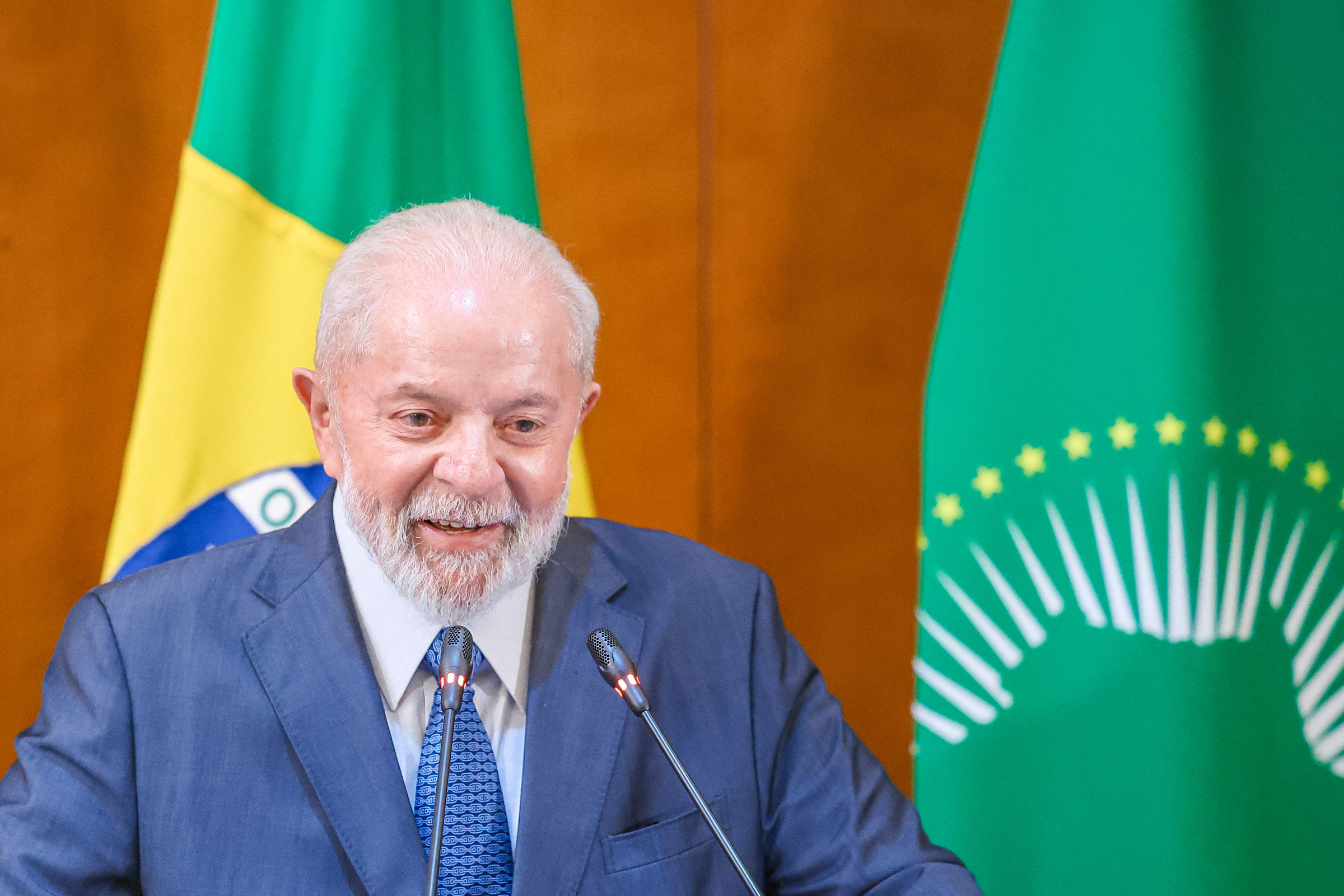The government will purchase products including acai berries, coconut water, mangoes, honey, fish, and Brazil nuts. Most of these will be used in public schools or added to national reserves.
Minister of Agricultural Development Paulo Teixeira said the government "cannot pay the prices exporters receive from other countries, which are calculated in USD," but will seek a "reasonable" price for all these items.
 |
Brazilian President Luiz Inacio Lula da Silva speaks in Addis Ababa, Ethiopia, 18/2. Photo: AFP |
Brazilian President Luiz Inacio Lula da Silva speaks in Addis Ababa, Ethiopia, 18/2. Photo: AFP
While also subject to the 50% US tariffs, coffee and beef are not included in the government's purchase plan. According to Teixeira, these two commodities are still sought after by many other markets and "will certainly find buyers."
"Brazilian coffee remains of interest to many other markets. The same is true for beef, with many places willing to buy at lower prices while still demanding the highest quality," he said.
On 9/7, then-US President Donald Trump announced the 50% tariffs on imported Brazilian goods in response to the trial of his ally, former right-wing President Jair Bolsonaro.
Brazil estimates that 35.9% of its goods exported to the US have been affected, equivalent to about 4% of its total exports. President Luiz Inacio Lula da Silva has repeatedly stated he would not call Trump to discuss trade, believing the former US leader was not interested in negotiations.
Earlier this month, Brazil also announced plans to support domestic businesses affected by the US tariffs, including a 30 billion real (5.5 billion USD) credit package and other measures.
Phien An (according to AP)












